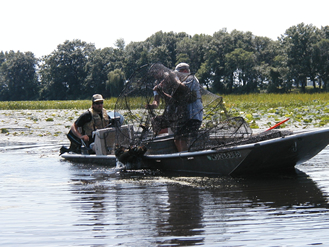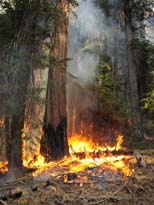- Home
- About S&T
- Taxa/Organisms
- Ecosystems
- Issues
- Methods & Tools
- Reports & Publications
- Location
- Search
Publisher: USGS | Science Center: Upper Midwest Environmental Sciences Center (UMESC, LaCrosse) | Format: URL
www.umesc.usgs.gov — This web resource provides decision makers with the information needed to maintain the Upper Mississippi River System as a viable multiple-use large river ecosystem. This resource also includes Data and sampling information, publication links, reports, other related documents and statistics, as well as links to field stations and other projects More...

Publisher: USGS | Science Center: Western Ecological Research Center (WERC, Sacramento) | Format: URL
www.werc.usgs.gov — Invasion and subsequent restructuring of ecosystems by nonnative organisms is taking on increasingly urgent significance as an example of human-caused environmental change with potentially dramatic consequences. This web resource discusses the affects of vascular plants - particularly in Sequoia, Kings Canyon, and Yosemite National Parks - on the More...

Publisher: USGS | Science Center: Western Ecological Research Center (WERC, Sacramento) | Format: URL
www.werc.usgs.gov — The Fire and Fire Surrogate study is a network of 13 long-term sites established nationwide to evaluate the ecosystem impacts of different fire hazard reduction treatment in forests that historically experienced short-interval, low- to moderate-severity fire regimes. The fuel reduction treatments being investigated by USGS researchers at Sequoia More...

Publisher: USGS | Science Center: Western Ecological Research Center (WERC, Sacramento) | Format: URL
www.werc.usgs.gov — This web resource addresses the positive relationship between cheatgrass (Bromus tectorum) and fire frequency as a major concern for land managers in semi-arid shrublands throughout western North America, particularly in Great Basin sagebrush steppe. Management tools are needed to break this cycle, and in this project we will evaluate the use of More...
